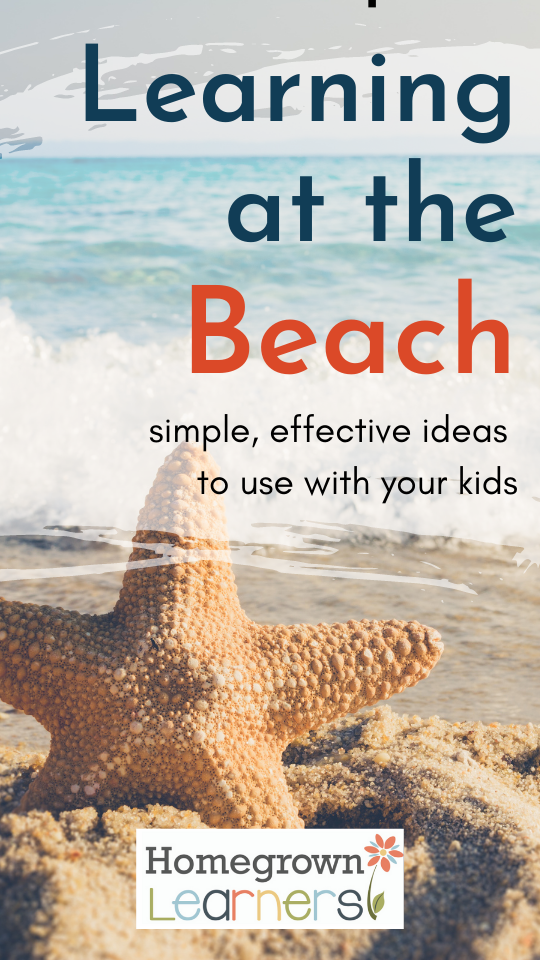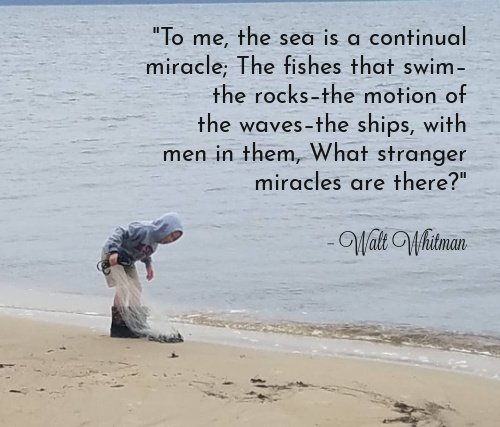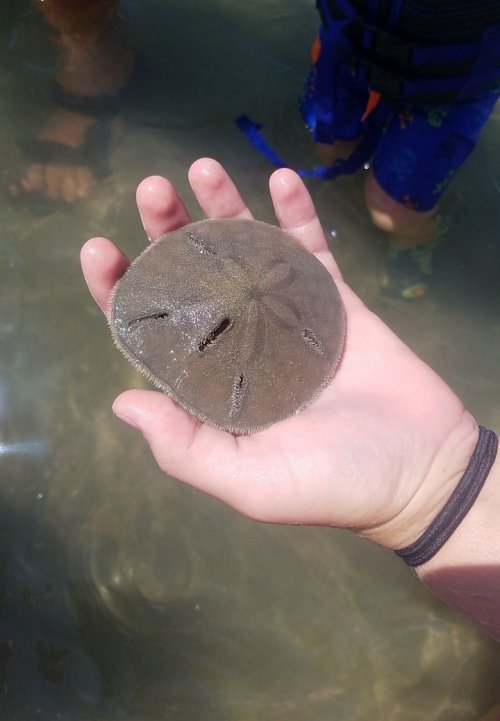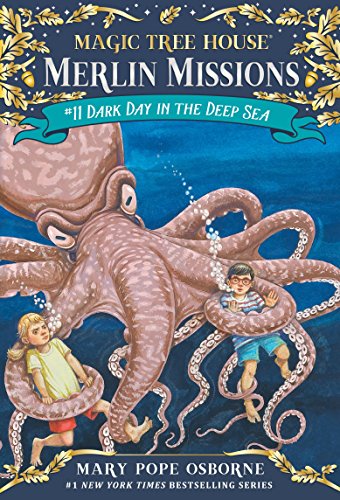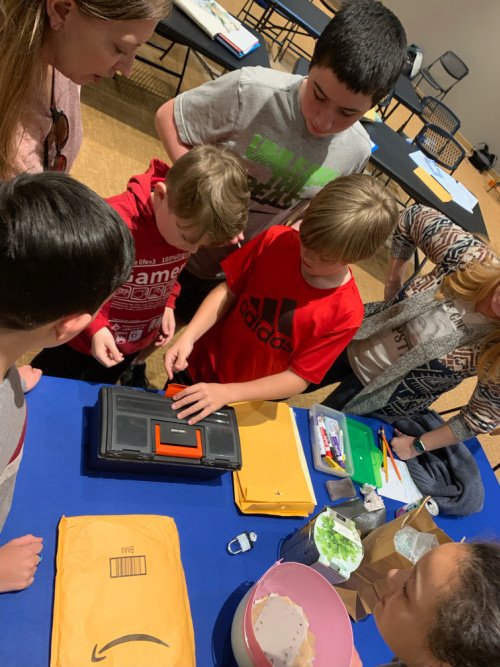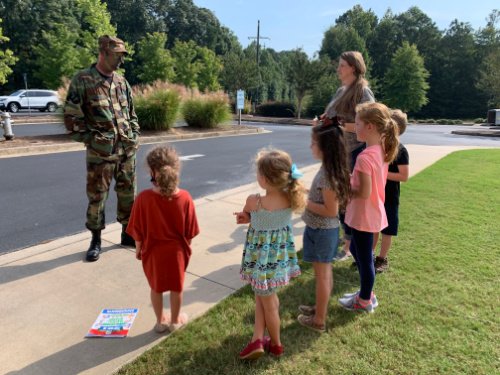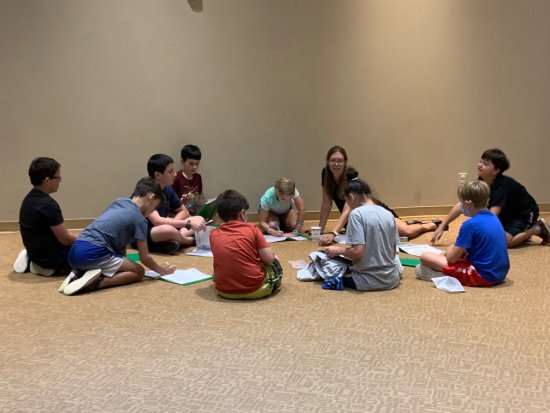There is something about the beach with the crashing of the waves, the sand in your toes, and the salty air that makes life a little bit better.
The weather is getting warmer, and many people plan trips to the beach. Whether you are heading down for a long weekend, a whole week, or just a day trip, the beach can be educational.
And - with so many different and fun educational activities at the beach; your children won’t even realize they are learning!
"To me, the sea is a continual miracle; The fishes that swim–the rocks–the motion of the waves–the ships, with men in them, What stranger miracles are there?" – Walt Whitman
Nature Study at the Beach
Nature study may be one of the most apparent educational experiences at the beach. In many ways, it happens naturally as children see the world around them. They begin to pick up shells, ask about seaweed, or search for treasures in a tide pool.
You may want to pick an area of study before going to the beach and learn a little before your trip. Alternately, you can let your children find what interests them at the beach and then study a little more when you get back.
Either way, I recommend bringing along a few items to help with your nature study.
First, a good field guide will be very beneficial in finding out more about what you are seeing. We love Peterson's First Guides for young children, but for the beach, we have found that it can be nice to have the small folding laminated guides that won't get messed up if they get splashed.
Next, I recommend a bag or bucket for collecting interesting finds to study further or bring home. We are careful not to remove any living creatures (except the fish we catch to eat), but we love collecting seashells and sea glass.
Finally, a small magnifying glass is a fun way to get a closer look at different objects. You can find inexpensive plastic ones that won't get messed up in the sand and saltwater.
Possible Areas of Nature Study at the Beach
Shell Collecting
Tide Pool Study
Seashore Birds
Sand Dunes
Sand Dollars
Conchs and Whelks
Fish
Can Fishing Be Educational?
In addition to nature study, you might want to do a little fishing while at the beach. My children, especially my boys, love to fish, and they could spend hours fishing every day if I let them.
The primary benefits of fishing are family bonding, fun memories, and a tasty dinner. However, there are also lots of educational opportunities that come with fishing. Children can learn more about the parts of the fish; watch the gills at work, and even learn more about the mechanics of how the fish maneuvers through the water.
A fresh fish can be a great first dissection project for older children. You can fillet the fish to get the meat and then use the carcass for dissection. They can learn to identify the different internal parts of the fish and discover more about the dissection process without the odor of a regular dissection specimen.
Art Ideas at the Beach
If you walk into any home décor store, you are likely to find a section of beach-themed art and décor. The beautiful colors, vibrant animals, and stunning shells make for great art.
If you have children that enjoy art, you could simply provide them with art materials and let them draw what interests them. You can also take pictures or have them use their memories to draw or paint a scene from the beach once you return from your trip.
Another fun art option is to do shell rubbings like you would do a leaf or bark rubbing. Simply place the shell under a piece of paper and rub over it with a pencil or crayon.
You could also do a collage using small objects and sand from the beach. They can collect a little sand, small shells, etc., and then glue them together into a collage. This is a beautiful way to have a souvenir from the trip.
"The sea is as near as we come to another world." – Anne Stevenson
Consider also these fun tutorials:
Beach Field Trips:
The beach is often a field trip in itself, but if you are there long enough to want some other options, there are many great related educational field trips.
Often you will find aquariums or animal rescue centers near the beach. These are a fantastic way to learn more about all of the nature you have been seeing while at the beach. Some people enjoy this as a rainy day activity; however, we have found that they get more crowded on rainy days. Our family enjoys using them as a nice cool break in the afternoon's heat.
Lighthouses make for an exciting field trip! There is so much history in our lighthouses. Be sure to do a little research about the lighthouses in the area before you go. Sometimes you can even climb to the top of the lighthouse. My husband and children tell me that the views are incredible!
There are several national seashores here in the United States, which are seashores preserved through the National Parks system. Each park has various amenities and features, but they often have a visitors center with educational information, videos, and programs.
Ideas for Further Beach Study:
If you want something more than your traditional beach study topics, you can dive deeper with a study on lighthouses. There is so much history and science involved in the lighthouses.
For older students, you could do a study on salinity and ocean water.
Another fun study would be kiting. The open beaches are often a great place to get enough wind to fly a kite, and you could do experiments to determine the best kite shape or conditions. There is also a lot of great history with kites.
Educational Beach Books
Living near the coast and loving the beach, we have an entire bookshelf devoted to books about the beach. You don't have to be as excessive as I am to use books to help you with your educational beach trip.
A few of my favorite fun beach books are Suzanne Tate's Nature Series and the Burgess Seashore Book for Children. These books have fictional storylines but include factual information about different sea animals. We read our copy of Danny and Daisy Dolphin from the Nature Series so many times that it fell apart, and we had to buy a new copy.
For non-fiction informational books, we like Marvels of Creation Sensational Sea Creatures from Master books, and 1001 Questions Answered About the Seashore.
Being from the Carolina coast, we also really like the Nature Guide to the Carolina Coast for more specific information. If you go to the beach in a different area, there are similar books for each state or region.
You might also want to get some fun beach books to strew through the house - or while you’re staying at the beach - to just enhance your beach trip!
The books below are just a few suggestions to get you started.
Hint: Me First is a super fun beach story that is always a huge hit with any child I know who has read it!
I hope these ideas help you add a little learning to your time at the beach. However, I also want to include a gentle reminder. There is value in just relaxing on the sand, building sandcastles, and splashing in the water. Fit in the learning opportunities as they arise, but do not be afraid to enjoy some time with your children at the beach.
Are you planning a trip to the beach?
Do you plan to learn while you are there?
This post is from contributing writer, Dawn Peluso.
Dawn is a passionate follower of Jesus, wife to Chris, and homeschool mom of four. In her spare time she loves to read, hike, and write on her blog Schoolin’ Swag. She enjoys reviewing curriculum and helping moms find the right fit for their families. Some of her favorite parts of homeschooling are hymn studies, living history, and read alouds. She and her children also enjoy incorporating food into their studies as often as possible.
You might also like:
Big Summer Reading List for Moms

